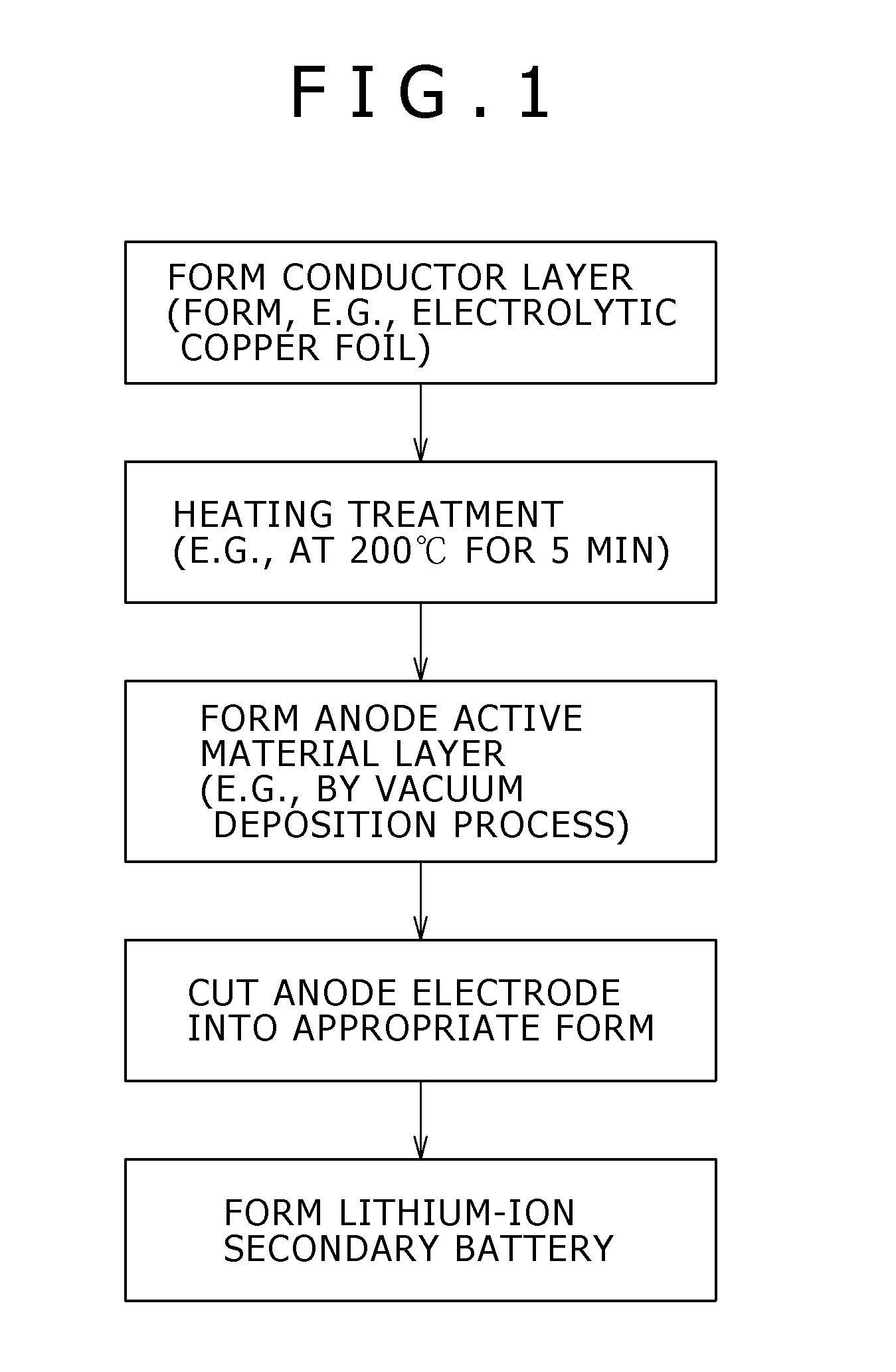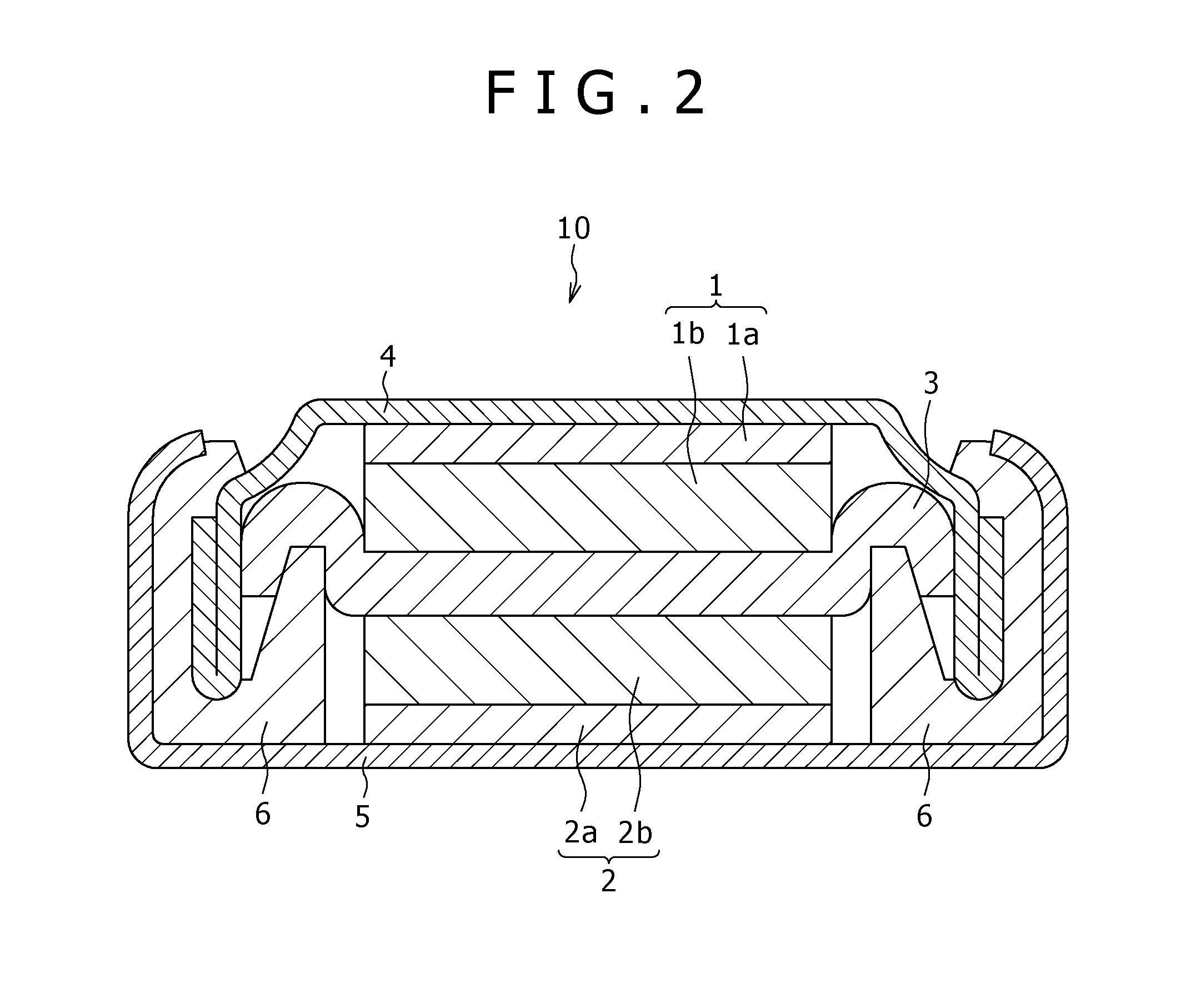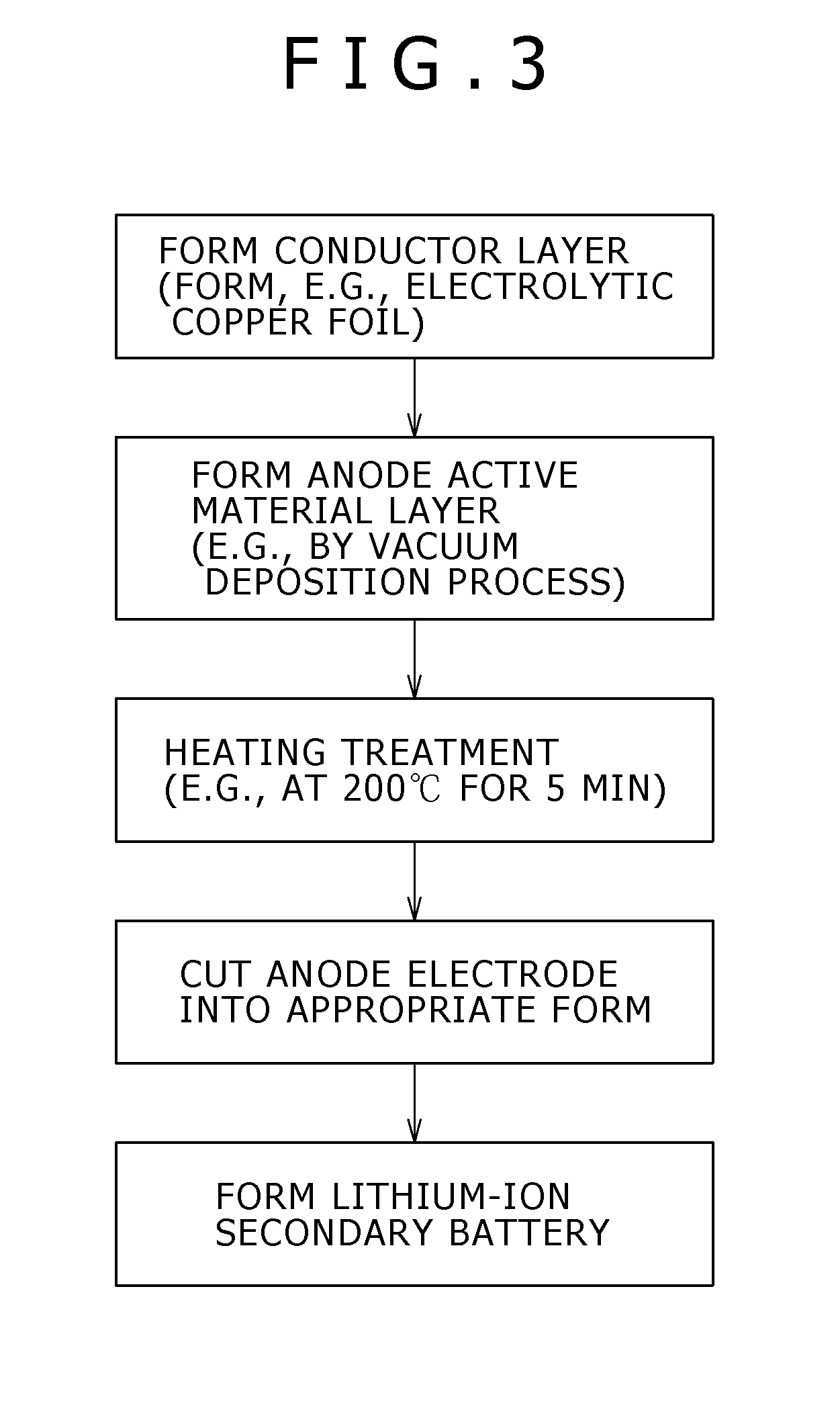Electrode current collector and method for producing the same, electrode for battery and method for producing the same, and secondary battery
- Summary
- Abstract
- Description
- Claims
- Application Information
AI Technical Summary
Benefits of technology
Problems solved by technology
Method used
Image
Examples
first embodiment
[0045]In the present embodiment, an example is described in which an electrode current collector is formed by the method for producing an electrode current collector according to an embodiment of the present invention and a lithium-ion secondary battery is formed using as an anode electrode an electrode for battery including the above-formed electrode current collector.
[0046]FIG. 1 is a flowchart showing the process for forming a lithium-ion secondary battery according to the present embodiment. First, a conductor layer for forming a conductive layer constituting an anode current collector, for example, an electrolytic copper foil is formed by an electrolytic process.
[0047]Then, the resultant conductor layer is subjected to heating to form a conductive layer. In this instance, the heating is preferably conducted at a temperature of 200° C. or higher for 5 minutes or longer. The heating is preferably conducted in an atmosphere of chemically inert gas, for example, in argon gas or nit...
second embodiment
[0092]In the present embodiment, an example is described in which an electrode for battery is formed using a related art electrode current collector, which is not treated by heating, and then the electrode for battery is subjected to heating, and a lithium-ion secondary battery is formed using as an anode electrode the electrode for battery treated by heating.
[0093]FIG. 3 is a flowchart showing the process for forming a lithium-ion secondary battery according to the present embodiment. First, a conductor layer for forming a conductive layer constituting an anode current collector, for example, an electrolytic copper foil is formed by an electrolytic process.
[0094]Next, an anode active material layer is formed on the anode current collector. The method for forming the anode active material layer is similar to that used in the first embodiment.
[0095]Then, the conductor layer of the anode current collector having formed thereon the anode active material layer is subjected to heating to...
example 1-1
[0099]In Example 1-1, an electrolytic copper foil having a surface roughened by an electrolytic treatment and having a thickness of 20 μm was used as an anode current collector material, and the anode current collector material was first subjected to heating such that the material was kept in an argon gas atmosphere of a calcination furnace at 500° C. for 10 hours. Then, a silicon layer having a thickness of 6 μm was formed on the heating-treated electrolytic copper foil by a vacuum deposition process using a deflecting electron beam evaporation source, thus forming an electrode for battery.
[0100]FIGS. 4A and 4B are photographs of the cross-section structures of electrolytic copper foils examined under a scanning electron microscope, in which the cross-sections are individually obtained by cutting by means of a microtome the electrolytic copper foil after the heating (FIG. 4A) and the electrolytic copper foil before the heating (FIG. 4B). From a comparison between FIGS. 4A and 4B, i...
PUM
| Property | Measurement | Unit |
|---|---|---|
| Temperature | aaaaa | aaaaa |
| Temperature | aaaaa | aaaaa |
| Pore size | aaaaa | aaaaa |
Abstract
Description
Claims
Application Information
 Login to View More
Login to View More - R&D
- Intellectual Property
- Life Sciences
- Materials
- Tech Scout
- Unparalleled Data Quality
- Higher Quality Content
- 60% Fewer Hallucinations
Browse by: Latest US Patents, China's latest patents, Technical Efficacy Thesaurus, Application Domain, Technology Topic, Popular Technical Reports.
© 2025 PatSnap. All rights reserved.Legal|Privacy policy|Modern Slavery Act Transparency Statement|Sitemap|About US| Contact US: help@patsnap.com



